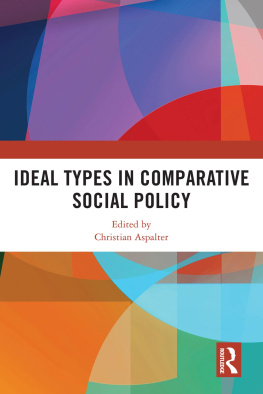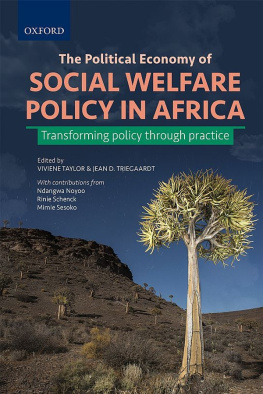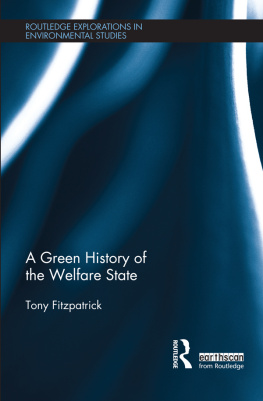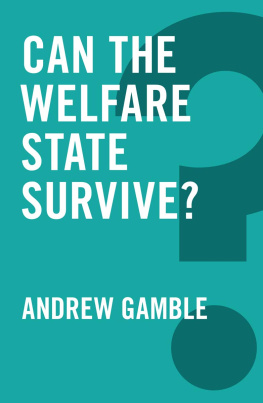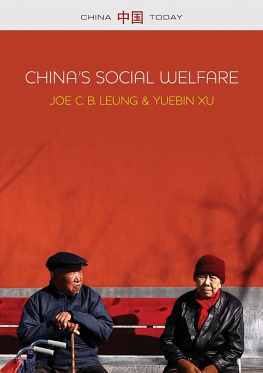Copyright Liene Ozolia 2019
The right of Liene Ozolia to be identified as the author of this work has been asserted by her in accordance with the Copyright, Designs and Patents Act 1988.
Published by Manchester University Press
Altrincham Street, Manchester M1 7JA
www.manchesteruniversitypress.co.uk
British Library Cataloguing-in-Publication Data
A catalogue record for this book is available from the British Library
ISBN 978 1 5261 2625 2 hardback
First published 2019
The publisher has no responsibility for the persistence or accuracy of URLs for external or any third-party internet websites referred to in this book, and does not guarantee that any content on such websites is, or will remain, accurate or appropriate.
Typeset by
Deanta Global Publishing Services, Chennai, India
Ethnography reaches the parts of politics that other methods cannot reach. It captures the lived experience of politics; the everyday life of political elites and street-level bureaucrats. It identifies what we fail to learn, and what we fail to understand, from other approaches. Specifically:
1. It is a source of data not available elsewhere.
2. It is often the only way to identify key individuals and core processes.
3. It identifies voices all too often ignored.
4. By disaggregating organisations, it leads to an understanding of the black box, or the internal processes of groups and organisations.
5. It recovers the beliefs and practices of actors.
6. It gets below and behind the surface of official accounts by providing texture, depth and nuance, so our stories have richness as well as context.
7. It lets interviewees explain the meaning of their actions, providing an authenticity that can only come from the main characters involved in the story.
8. It allows us to frame (and reframe, and reframe) research questions in a way that recognises our understandings about how things work around here evolve during the fieldwork.
9. It admits of surprises of moments of epiphany, serendipity and happenstance that can open new research agendas.
10. It helps us to see and analyse the symbolic, performative aspects of political action.
Despite this distinct and distinctive contribution, ethnographys potential is rarely realised in political science and related disciplines. It is considered an endangered species or at best a minority sport. This series seeks to promote the use of ethnography in political science, public administration and public policy.
The series has two key aims:
1. To establish an outlet for ethnographic research into politics, public administration and public policy.
2. To build an interdisciplinary platform for a readership interested in qualitative research into politics and administration. We expect such work to cut across the traditional scholarly boundaries of political science, public administration, anthropology, organisation studies, social policy, and development studies.
Why is anyone interested in an unemployment office in Latvia and training programmes that encourage people to take charge of their lives? The answer is as simple as it is important. We are interested because it is an example of the forms of state control under austerity in post-Soviet economies. In a phrase, the case speaks to big issues.
I was drawn to this book by the image of swallowing a toad. The Latvian economy had suffered badly because of the global financial crisis yet there were no protests about austerity. To swallow a toad means to put up with something unpleasant. It is an act of acquiescence chosen because it is the only available response. It is an image that epitomises the Latvian mentality. Liene Ozolia asks why Latvians acquiesced in austerity. She is sceptical about the claim that Latvians have internalized neoliberal beliefs about responsibility and freedom of choice the present-day version of false consciousness. Rather, in the classic ethnographic way, she paid attention to how her informants the trainers, the policy makers, the civil servants, and the trainees understood austerity.
The fieldwork involved observing the everyday implementation of workfare programmes, especially the seminars on Competitiveness-raising activities. There were various specific seminars on, for example, writing a CV, behaving at a job interview, and finding a new job as well as more general seminars on improving ones self-confidence, and working on oneself. Liene Ozolia attended two or three sessions a week for two months, observed registration for the seminars, conducted formal and informal interviews with people she met at the seminars. There were 46 recorded interviews. She spoke also to several former directors and other top-level civil servants of the Employment Agency. Finally, she interviewed former and current policy makers at the Ministry of Welfare, welfare policy analysts, and a former minister of employment affairs.
The first three chapters focus on the ways in which austerity worked and the role that time and waiting played as forms of present-day state control. She explores the politics of waiting as a tool of state control. The analysis then shifts away from the state to actors and the ways in which trainers and trainees understood their everyday working practices.
At the beginning of the research, Liene Ozolia saw the workfare programmes as a cynical state initiative because it focused on individual responsibility when the unemployed confronted a shrinking labour market. By the end, she saw the seminars as a genuine space for both self-examination and meaningful interaction with other trainees. The seminars became a space for working on the self, and a way of carving out a life that is livable. The seminars were no longer about the use of waiting to exert social control but about self-formation and speaking and listening in a public sphere. In other words, workfare programmes began as a tool of the coercive state but became popularly legitimated in everyday practice. The workfare programme both disciplined the unemployed but also served as a space for practicing an ethics of freedom.
Ethnography is about giving voice to the silent and opening new research agendas, and Liene Ozolia does both successfully. She points us towards exploring the forms of statecraft emerging in the aftermath of neoliberalism and to the individual quest for a meaningful life in this aftermath.
Professor R. A. W. Rhodes




